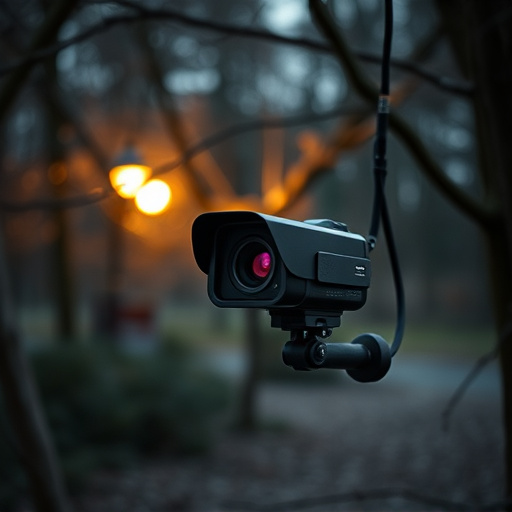In the competitive rental market, understanding the legal and ethical intricacies of hidden cameras that record audio is essential for both landlords and tenants. While landlords must ensure property safety, they must do so while respecting tenant privacy. These cameras can be cleverly concealed in everyday objects or fixtures, making their detection challenging. Utilizing specialized tools and regular inspections can aid in identifying such devices. Ethical deployment requires transparency, consent, and clear communication, ensuring a balance between security needs and the right to privacy in rental properties.
In today’s digital age, tenants increasingly worry about their privacy in rental properties. This article delves into the intricate world of secret surveillance, focusing on hidden cameras that record audio. We explore legal boundaries governing what’s allowed and not, common concealment spots for these devices, and ethical considerations surrounding tenant privacy rights. Armed with knowledge, both landlords and tenants can ensure a balanced approach to security while respecting personal space.
- Understanding Legal Boundaries: What's Allowed and What's Not
- Common Concealment Spots for Secret Cameras in Rental Properties
- Identifying Hidden Audio Recorders: Techniques and Tools
- Ethical Considerations and Privacy Rights of Tenants
Understanding Legal Boundaries: What's Allowed and What's Not
In the realm of rental properties, understanding legal boundaries surrounding secret surveillance is paramount for both landlords and tenants. While landlords have rights to maintain a safe environment, they must adhere strictly to privacy laws. Installing hidden cameras that record audio without proper notice or consent from all occupants can constitute a severe breach of privacy, leading to legal repercussions.
Tenants should be aware of their protections under the law, which often include requirements for explicit disclosure and reasonable notice before installing any surveillance equipment. Understanding these boundaries ensures a harmonious relationship between landlords and tenants, fostering an environment where safety and privacy coexist.
Common Concealment Spots for Secret Cameras in Rental Properties
In the quest to uncover secret surveillance, rental properties often present unique challenges due to their diverse and sometimes peculiar layout. Landlords or tenants with malicious intent may utilize creative hiding spots for hidden cameras that record audio, taking advantage of everyday objects or features commonly found in these spaces. From inside bookshelves to fake electrical outlets, these concealed devices can capture intimate conversations and activities without the subject’s knowledge.
A common tactic is to place cameras in ceiling light fixtures, offering a discreet way to monitor rooms below. Additionally, mirrors, especially those with one-way glass, serve as stealthy hiding places for both audio and visual recording devices. Other less obvious yet effective spots include door card readers, smoke detectors, and even seemingly innocuous decorative items like potted plants or figurines, all capable of serving as secret surveillance tools in the right hands.
Identifying Hidden Audio Recorders: Techniques and Tools
Identifying hidden audio recorders in rental properties is a critical step for maintaining privacy and security. Landlords or unauthorized individuals may install such devices, including hidden cameras that record audio, in various inconspicuous locations. To detect these, tenants should learn to recognize potential hiding spots. Common areas include wall sockets, light fixtures, smoke detectors, and even door handles—all easily accessed yet strategically placed for surveillance.
Tools like infrared thermal imaging cameras can help visualize hidden components. Additionally, using electronic signal detectors or audio-sensing devices can pick up unusual electromagnetic signals emitted by recording devices. Tenants should also be vigilant, checking for any signs of tampering or unusual equipment during regular inspections. Regular maintenance and awareness can significantly reduce the risk of being monitored by hidden cameras that record audio.
Ethical Considerations and Privacy Rights of Tenants
In the context of rental properties, the use of hidden cameras and audio recording devices raises significant ethical concerns and questions about tenant privacy. While landlords have a legitimate interest in maintaining security and managing their properties effectively, they must balance these needs against the fundamental right to privacy. Tenants expect their living spaces to be secure and free from unwanted intrusion; installing hidden cameras that record audio without explicit consent can violate this expectation.
The placement of such devices, especially in areas considered private or commonly used for personal interactions, can lead to a breakdown of trust between landlords and tenants. Additionally, the potential misuse or unauthorized access to recorded data poses substantial risks. Tenants have the right to know when they are being monitored and to give informed consent if recordings are intended for any purpose beyond immediate property management. The ethical use of hidden cameras that record audio in rental properties requires transparency, clear communication, and respect for tenant privacy.
While exploring the intricacies of hidden cameras, from their placement in rental properties to ethical implications, it’s clear that maintaining privacy is a delicate balance. Understanding legal boundaries and the potential for invasive devices like hidden audio recorders requires vigilance from tenants. Regular checks and awareness of common concealment spots can help protect against violations of privacy. In today’s digital era, staying informed about these issues ensures your rights are respected and you can safely navigate your living spaces.
